Porto Alegre(Estadio Beira-Rio)
From the subtropical climate to the cultural habits, Porto Alegre is fairly different from the other state capitals in Brazil. Founded in 1742 by immigrants from the Portuguese archipelago of Azores, the capital of Rio Grande do Sul was the destination of thousands of immigrants from Portugal and Italy - like many other cities in Brazil but also from other European countries, particularly Germany and Poland.
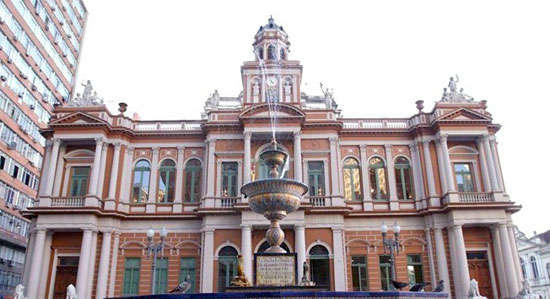
Besides that, as the state is located far down the south of Brazil, the gaúchos, as people from Rio Grande do Sul are called, share several cultural traits with their neighbours from Argentina and Uruguay, from the folklore music to the habit of drinking the mate infusion, or chimarrão.
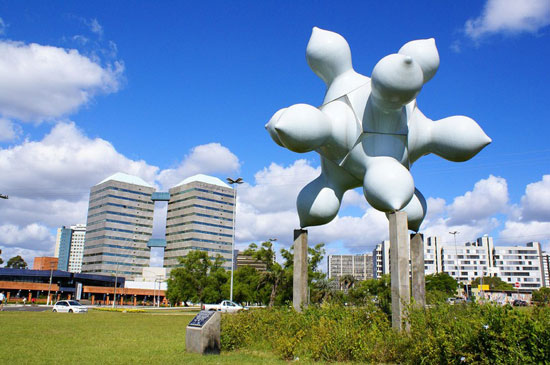
Porto Alegre lies on the eastern bank of the Guaíba River, right at the convergence point of five other rivers, which together form the enormous Lagoa dos Patos (Ducks Lagoon). Its 497 square kilometres are covered with more than one million trees, making it one of the greenest cities in Brazil, despite being the nucleus of the fourth-most populous metropolitan area in the country, with roughly four million inhabitants. There are over 1.4 million people living within the boundaries of Porto Alegre.
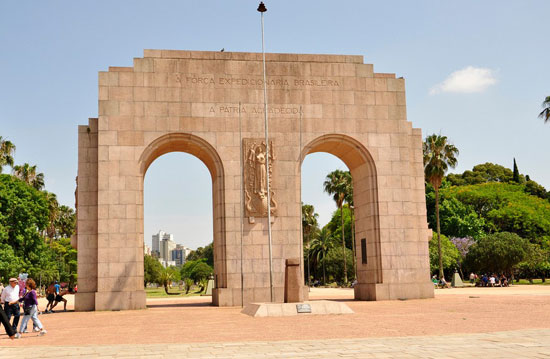
Temperatures are a lot milder in Porto Alegre than they are in most of the Brazilian capitals, with an annual temperature average of 19.5ºC and cold winters that have historical records of snow and subzero temperatures. The four seasons are very defined, though, and during the summer, temperatures may go well beyond 35ºC. The capital of Rio Grande do Sul is also famous for featuring one of the highest human development index figures in the whole country.
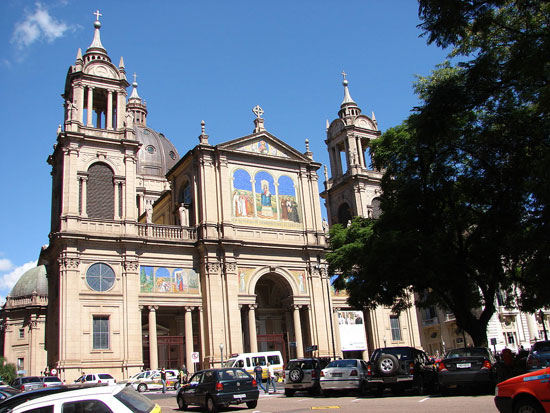
Football
The football scene in the city of Porto Alegre is divided in two halves: the black and blue one from Gremio Foot-Ball Porto Alegrense and the red and white from Sport Club Internacional. The two teams share the passion of the porto-alegrenses and are two of the most important clubs in the history of Brazilian football.
Besides dominating the history books of Rio Grande do Sul, Gremio and Inter also combine for a number of national and international titles: while the Tricolor have conquered the Campeonato Brasileiro title twice (1981 and 1996), the Copa do Brasil four times (1989, 1994, 1997 and 2001), the Copa Libertadores twice (1983 and 1995) and the Toyota Cup once (1983), o Colorado have keep their silverware gallery packed with three Brasileiro titles (1975, 1976 and 1979), one Copa do Brasil (1992), two Libertadores (2006 and 2010), one FIFA Club World Cup (2006), one Copa Sul-Americana (2008), among many others.
Both Gremio and Internacional own traditional and highly regarded stadiums for over 50,000 spectators, separated some 2.5 km from each other: the Olímpico Monumental and the Beira-Rio, respectively. Their youth divisions are also among the most prolific in Brazil, having produced the likes of Ronaldinho Gaúcho, Emerson, Renato Gaúcho (Grêmio), Falcao, Taffarel and Alexandre Pato (Internacional).
The Beira-Rio will be the one hosting FIFA World Cup matches, after going through a complete revamp.
Owner: Internacional (RS)
Capacity: 48849
Country: Brazil
City: Porto Alegre
Address: Praia de Belas, Porto Alegre - RS, Brazil
Value: £330million
Inauguration: 1969
Average temperature in June: 19.7°C
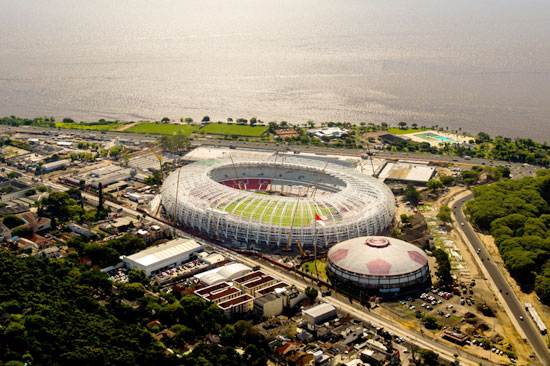
Profile:
Located on the banks of the River Guaiba, the Estadio Beira-Rio is the home of two Brazilian clubs - Internacional and neighbours Gremio. Porto Alegre has a subtropical climate so take an umbrella if you go there next summer. One of Porto Alegre’s biggest attractions is the famous Lago de Patos (Ducks Lagoon), which is surrounded by one million trees.
Beira-Rio is the biggest stadium in the Rio Grande do Sul state and also South Brazil. Recently, the stadium's field was chosen as the best in an election by captains of the 20 teams that participate in Campeonato Brasileiro Série A. The Beira-Rio complex also houses a chapel, an events center, bars, stores and a parking lot for 3,000 cars. Parque Gigante, featuring pools, gyms, football fields, and tennis courts, is located next to it.
Matches:
15/06/2014 16:00 France vs. Honduras
18/06/2014 13:00 Australia vs. Netherlands
22/06/2014 16:00 Korea Republic vs. Algeria
25/06/2014 13:00 Nigeria vs. Argentina
30/06/2014 17:00 Round of 16 1G vs. 2H
Local hero:
Ronaldinho, the 33-year old Brazil forward, was born in Porto Alegre and won the Fifa World Player of the Year Award in 2004 and 2005. He is also known as 'Gaucho' to distinguish him from Ronaldo, his former fellow international.

Legends pay tribute to Gerrard & Lahm
International retirements follow Wo...
- Year
- Winner
- Runner-up
- Third place
